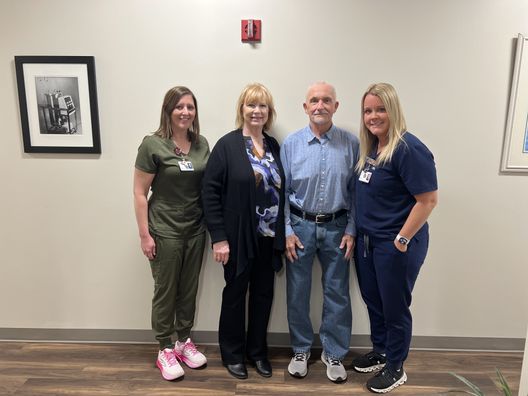February is recognized as American Heart Month. During this month, it’s important to be informed about the signs, symptoms, risk factors, and the prevention of heart disease. Quincy Medical Group Nurse Practitioner Hope Owens answered some frequently asked questions about your heart.
How common is heart disease?
- Per the Centers for Disease Control and Prevention (CDC), about 659,000 people in the United States die from heart disease each year. That is approximately one person dying every 36 seconds.
- The most common form of heart disease is coronary artery disease or also called ischemic heart disease (plaque buildup in the walls of the arteries that supply blood to the heart. The plaque buildup causes the inside of the arteries to narrow over time, which can partially or totally block the blood flow which can cause a heart attack).
- Other common types of heart disease are heart arrhythmias (heart’s electrical activity system is affected), congestive heart failure (heart’s pump is affected), heart valve disease (one or more heart valves are not functioning appropriately), cardiomyopathy (weakness of heart muscle), and pericardial disease (inflammation of the heart).
What risk factors contribute to heart disease?
Risk factors for heart disease are high blood pressure, high cholesterol, uncontrolled diabetes, smoking, alcoholism, poor diet, inactivity, age, obesity, stress, and family history.
What’s a sign that something may be wrong with my heart?
Symptoms of heart disease can often vary for each individual whether male or female. Symptoms can often be silent but the most common symptom is chest pain (angina) when specifically referring to a heart attack. This can be described as a heaviness, pressure, aching, burning, fullness, squeezing, or painful feeling in your chest. It can be mistaken for indigestion or heartburn. This discomfort may radiate to the back, jaw, throat, or arm and can be associated with sweating. Other symptoms can include shortness of breath, palpitations, nausea or vomiting, fluid retention, extreme fatigue, and dizziness.
What are some things individuals can do to protect their hearts?
To protect your heart one should get routine blood pressure, cholesterol, and diabetes screenings by their health care provider. They should also stop smoking, limit alcohol intake (one drink for women and two drinks for men per day), make healthy food choices (heart-healthy diet), maintain a healthy weight (normal BMI), lower their stress level, and exercise (30 minutes a day, 5 days a week of moderate-intensity activity).
Facts about heart disease in men and women.
Often, heart disease is sometimes referred to as man’s disease but almost as many women as men die each year of this disease in the United States. Heart disease is the leading cause of death of men in the United States (1 in 4 deaths) and also women (1 in 5 deaths).
The QMG Cardiology team is here to care for you. To learn more about our team and services, visit https://quincymedgroup.com/medical-services/cardiology/.
Health Topics:







